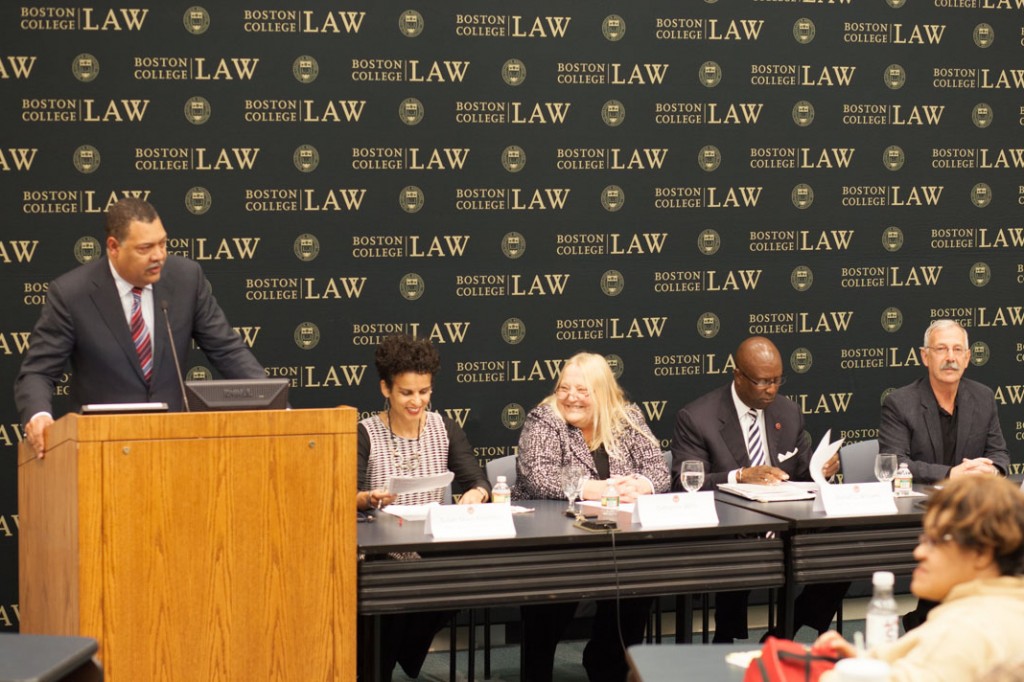“Equality recession.” That’s a term coined by two leaders of BC’s Black Law Students Association (BLSA), Alvin Reynolds and Taisha Sturdivant, to describe what they see as failings in the ongoing struggle for justice and equality in America.
Certainly, the US has made significant progress since the 1960s in fulfilling its constitutional promise of equality for all. But some observers have become alarmed by what they see as regressive behavior since the peaks of the civil rights gains.
BLSA co-hosted a panel discussion March 18 to begin a dialogue about these issues, among them the mass incarceration of men of color, high unemployment rates in black and Hispanic communities, voter suppression, and the killing of unarmed black men by police.
The panelists, experts in urban advocacy (Darnell L. Williams, CEO of the Urban League of Eastern Massachusetts), social policy and economics (Tom Shapiro, professor and director of the Institute on Assets and Social Policy at Brandeis University), and civil rights theory (BC Law professor Catharine Wells), explored how the US can rebound from this “equality recession.” Northeastern Law School professor Susan Maze-Rothstein ’85 moderated.
Their presentations covered everything from voter suppression and bias in standardized tests to white privilege and the racial wealth gap.
Shapiro cited statistics showing that minorities are still not receiving equal rewards for equal achievement. He also suggested that as long as Americans are rewarded for acting in a racially biased way—such as moving from the urban areas where schools are poor to suburbs where their children will receive a better education—such inequities will persist. Wells set off some debate with members of the audience when she said that one way to attract more applicants of color to law school would be to drop the LSAT as a requirement for admission, a move that some believe could hurt schools’ rankings in US News & World Report.
For his part, Williams said that it will be difficult to ensure civil rights for all Americans until they take an honest look at the truths of the past. Speaking about the hurt he has experienced as a black man, Williams said some people are clueless about the pain caused by discriminatory acts. “But they should acknowledge it,” he said, “so we can move forward.”
BLSA co-sponsored the event with the Jesuit Institute at Boston College and Law School Office of the Dean.


